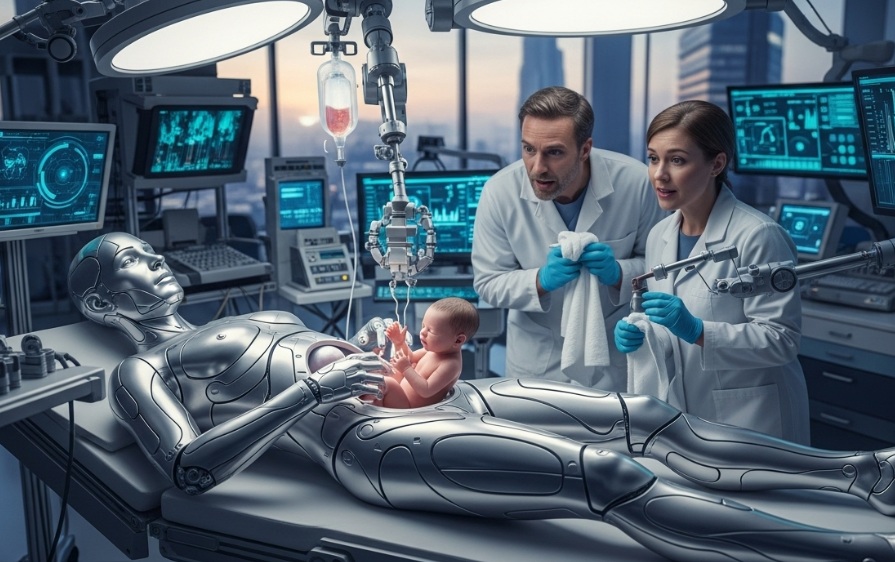
Guangzhou, August 18 : Scientists in China are reportedly developing a revolutionary technology: a humanoid robot designed to carry and birth a live baby. Led by Dr. Zhang Qifeng of Kaiwa Technology, the project aims to replicate a natural pregnancy within an artificial womb housed inside a robot.
This technology would allow a fetus to grow for nine months inside the robot’s body, nourished by a tube within a space filled with artificial amniotic fluid. Dr. Zhang, who earned his PhD from Nanyang Technological University in Singapore, believes the technology is ready to be implemented. He is currently working with authorities in Guangdong to establish legal guidelines for its use. A prototype is expected to be available for sale next year for an estimated price of around 100,000 yuan, or roughly ₹12 lakh.
While the exact process of fertilization and fetal implantation remains unclear, the concept draws inspiration from previous experiments where premature lambs were successfully kept alive in “biobags” for weeks. The developers claim the robot will be able to manage the entire pregnancy journey, from conception to delivery.
Ethical and Social Implications
This groundbreaking technology has sparked significant ethical and legal debates. While proponents view it as a solution for rising infertility rates, particularly in China where rates jumped from 11.9% in 2007 to 18% in 2020, critics question its moral impact.
Supporters argue that artificial wombs could protect women from the health risks and physical stress of pregnancy, potentially offering a new option for family planning. However, opponents contend that the technology is ethically problematic because it could disrupt the natural bond between a mother and child. Some medical experts also express skepticism about whether science can truly replicate the complex hormonal and biological processes involved in human gestation. Radical feminist Andrea Dworkin famously warned that such a development could lead to the “end of women.” Additionally, researchers from The Children’s Hospital of Philadelphia have cautioned that this technology might cause pregnancy to be viewed as a medical condition rather than a natural process.





